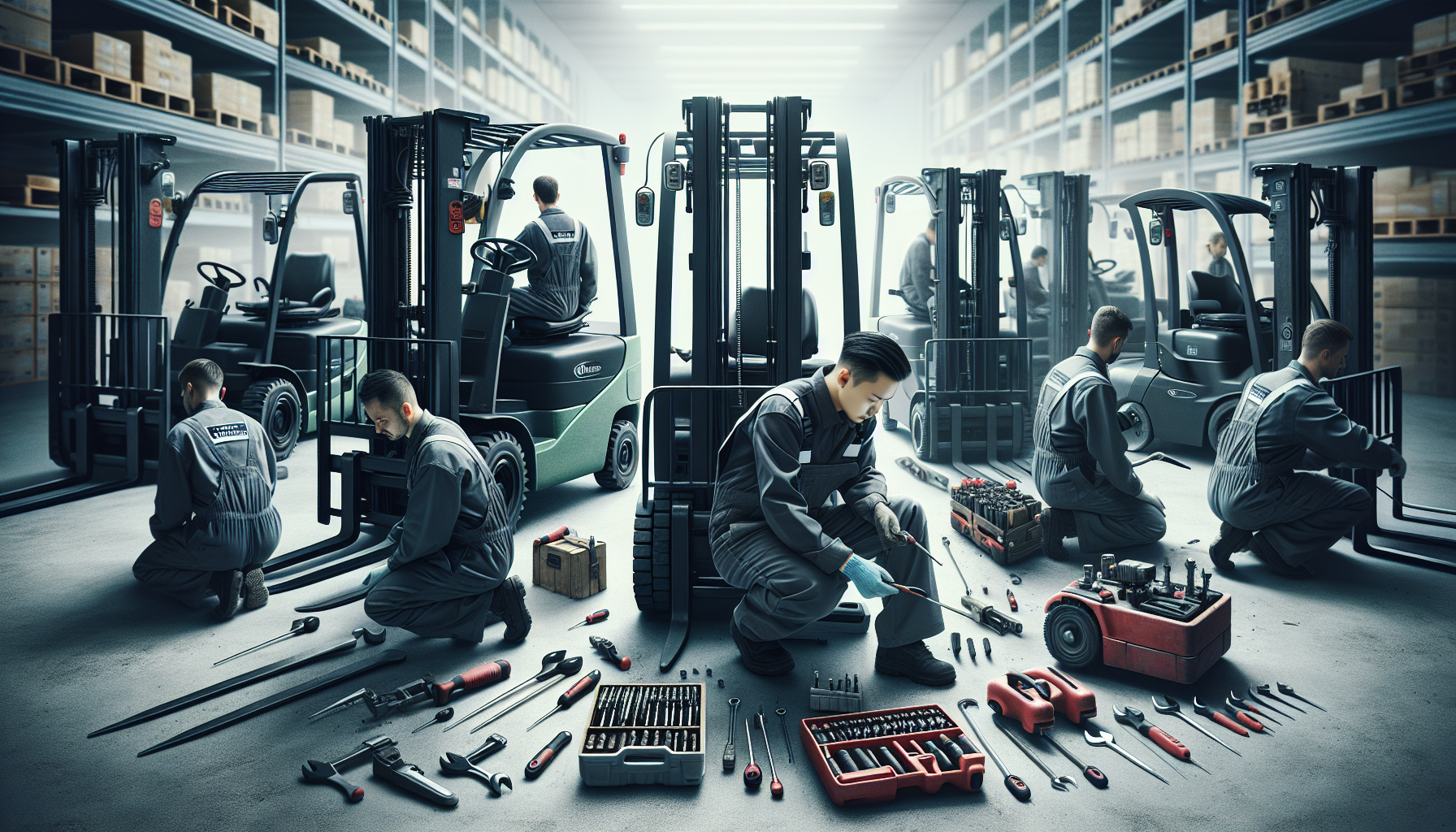When it comes to warehouse operations, efficient forklift maintenance plays a crucial role in ensuring smooth operations and minimizing downtime. Forklifts are essential equipment in the warehouse, responsible for moving and lifting heavy loads. However, different forklift models require specific maintenance techniques to optimize their performance and extend their lifespan.
Understanding Forklift Maintenance for Different Models
Proper maintenance is vital to keep forklifts operating at their best. By following manufacturer guidelines and implementing a proactive maintenance program, warehouse managers can significantly reduce the risk of breakdowns, enhance safety, and improve productivity. Here are some key points to consider when optimizing forklift maintenance for different models:
1. Study the Manufacturer’s Guidelines
Each forklift model comes with a specific set of maintenance guidelines provided by the manufacturer. These guidelines outline the recommended maintenance tasks, schedules, and procedures for optimal performance. It is crucial to study and familiarize yourself with these guidelines to ensure you are implementing the correct maintenance practices for each forklift model in your fleet.
2. Regular Inspections
Scheduled inspections are essential for detecting and addressing any potential issues before they become significant problems. Implement a regular inspection routine that includes checking for signs of wear and tear, leaks, loose bolts or connections, and any other potential safety hazards. By conducting thorough inspections, you can identify and address maintenance needs promptly, reducing the risk of breakdowns and accidents.
3. Proper Lubrication
Proper lubrication is crucial for the smooth operation of forklifts. Each forklift model requires specific lubrication points that need regular attention. It is important to follow the manufacturer’s guidelines for lubrication intervals and use the recommended lubricants. Over-lubrication can be as harmful as under-lubrication, so it is crucial to find the right balance to prevent excessive wear and tear on critical components.
4. Battery Maintenance for Electric Forklifts
Electric forklifts require specific maintenance considerations due to their battery power source. Ensuring proper battery maintenance is key to optimizing the performance and extending the lifespan of electric forklifts. This includes regular inspections, cleaning, equalizing charge cycles, and following the manufacturer’s guidelines for battery maintenance. Implementing a disciplined battery maintenance routine will help avoid unexpected downtime and maximize the efficiency of electric forklifts.
5. Tire Maintenance
Tires play a vital role in the overall performance and stability of forklifts. Different forklift models may have different tire types and sizes, each requiring specific maintenance considerations. Regularly check tire pressure, inspect for signs of wear and damage, and ensure proper alignment. Proper tire maintenance reduces the risk of accidents, improves fuel efficiency, and extends the lifespan of the tires.
6. Operator Training and Feedback
Proper forklift maintenance is not solely the responsibility of the maintenance team. Providing comprehensive training to forklift operators is essential to ensure they understand the importance of regular maintenance tasks and can identify potential issues. Encourage operators to report any maintenance concerns promptly. Their feedback can provide valuable insights and help prevent minor issues from escalating into major problems.
7. Partner with a Forklift Maintenance Provider
For warehouse managers who prefer to focus on core business operations and leave forklift maintenance to the experts, partnering with a professional forklift maintenance provider is an ideal solution. These providers specialize in comprehensive turnkey forklift maintenance solutions, including preventive maintenance, repairs, and parts replacements. By outsourcing your forklift maintenance needs to a reputable service provider, you can ensure your forklift fleet is always in optimal condition and minimize operational disruptions.
At HCO Innovations, we understand the importance of optimized forklift maintenance for different models. We offer turnkey forklift maintenance solutions that are tailored to your specific needs, ensuring that your forklift fleet operates at its best. Our team of experts is well-versed in the maintenance requirements of various forklift models and can provide comprehensive maintenance services to enhance safety, productivity, and efficiency in your warehouse operations.
To learn more about our turnkey forklift maintenance solutions, please visit HCO Innovations.

